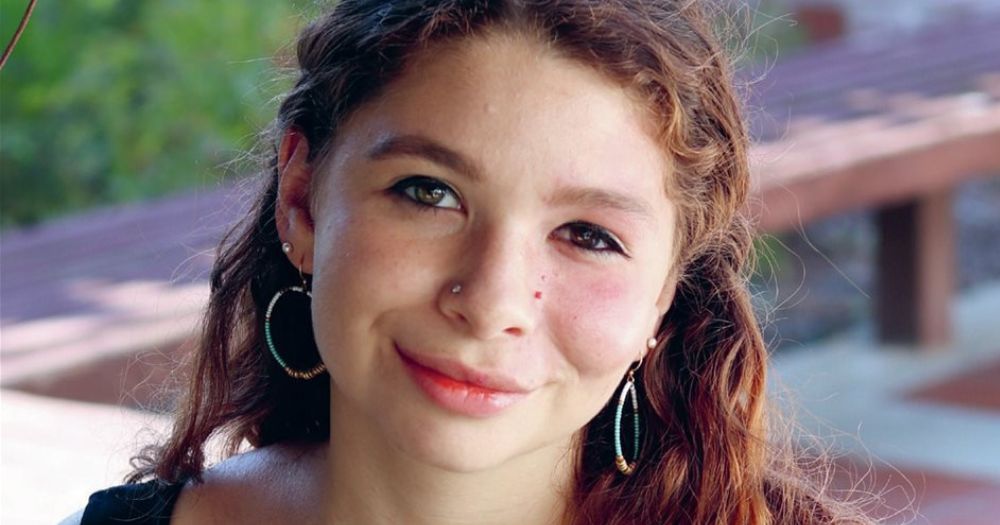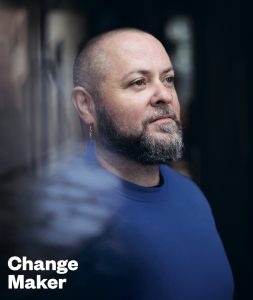When Lucia Stein interned with GCN, she learned a lot about the language communities use to identify themselves, as well as those who would choose to weaponise that usage.
It wasn’t until recently that I learned the moment one of my closest friends identified me as someone worth knowing was long before we truly became close. It was actually more than a year prior, when they watched me shut down a boy at our secondary school for using what I refer to as ‘the f-word.’ They became a good friend of mine over the course of the next few years, but that day, they told me years later, was what made them notice me.
As a straight, cis-gender person, I’ve never been comfortable with the f-word. Certainly, those within the queer community may reclaim it if they so choose, but I adamantly believe it is unacceptable for straight cis people to use the term. I’m not afraid to tell people off for doing so, hence my actions that day in the early autumn of 2014.
I know that the f-word, along with the d-word, has been reclaimed for some, as something acceptable within the queer community when lovingly and humorously referring to friends. To my understanding, though, context matters immensely here. The speaker, the listener, the relationships between them and the general atmosphere of the setting are all essential. In many circumstances, the use of these terms remains inappropriate or offensive. Kanye’s ‘Stronger’ comes to mind for me personally, playing into straight men’s fetishisation of lesbianism with the line “I would do anything for a blonde d***”.
But in other situations, used by other people, the d-word is entirely reclaimed. Some of my queer friends use it casually, which shocked me initially before I realised that this was the process of reclaiming a word – using it in familiar settings with trusted people who would never weaponise it.
Lines drawn on the basis of context and identity leave room for questions, though. I can’t decipher if it’s acceptable for me to use the d-word, even in comfortable settings with others I know won’t weaponise the language. Is active allyship, like shutting down those who think it’s cool to use slurs, enough? Does my group of friends affectionately referring to me as ‘the Token Straight’ make it okay for me? Or is it dependent on an identity within the queer community- a reasonable requirement that I do not meet?
I tend to adopt this last view, at least in part because the uncertainty itself makes me uncomfortable. In truth, though, I don’t know. I remember just a few years ago still being unsure of whether it was appropriate for me to use ‘queer’. It had been used as a slur for so long, and while I knew it had been reclaimed to some extent, I wasn’t certain what majority opinion on it was, especially for those outside of the LGBTQ+ community. Language is subjective. What is appropriate is subjective, and I am often wary of accidentally offending someone by using a term I incorrectly assumed was acceptable for anyone to use.
I understand ‘queer’ as having been all but completely reclaimed, at least in my home country of the US. The term is used by my LGBTQ+ friends and my straight friends, in academic texts, in advertisements and infographics, in TV and movies, and beyond. It’s everywhere. I no longer feel hesitation around using it, and I find it amazing that just a few years created such a shift in attitudes around language, including my own. Interning at GCN, ‘queer’ is the word I reached for constantly when writing articles, whether about Heartstopper LEGO sets or legal challenges to same-sex marriage bans.
I feel that, regardless of the identity of the speaker, we are all better off for the reclamation and widespread use of ‘queer.’ ‘Queer’ allows people to exist outside labels which may define their identities too rigidly or too narrowly. ‘Queer’ lives in its own category. Though ‘LGBTQ+’ certainly allows for some flexibility, it is in its essence still a set of labels. ‘Queer,’ however, allows for freedom. It is wonderful in its explicit indication that the person or thing it describes is a part of this community – the queer community, gay community, LGBTQ+ community, however you choose to describe it – but does not demand disclosure about the specifics of identity. The term ‘queer’ inclusively allows people to share an important part of their identities without having to define the precise intricacies of their gender or sexuality.
So, I’ll keep using ‘queer,’ but I’ll stay away from the d-word and the f-word. I’ll keep an ear out for the changes in culture and terminology, though, and maybe one day what I’m comfortable with will change.
I’ll keep telling off boys who think slurs are cool, though. The objectionable language in specific may change, but that never will.
This story originally appeared in GCN’s October 2022 issue 374. Read the full issue here.
© 2022 GCN (Gay Community News). All rights reserved.
This article was published in the print edition Issue No. 374 (October 21, 2022). Click here to read it now.
Support GCN
GCN is a free, vital resource for Ireland’s LGBTQ+ community since 1988.
GCN is a trading name of National LGBT Federation CLG, a registered charity - Charity Number: 20034580.
GCN relies on the generous support of the community and allies to sustain the crucial work that we do. Producing GCN is costly, and, in an industry which has been hugely impacted by rising costs, we need your support to help sustain and grow this vital resource.
Supporting GCN for as little as €1.99 per month will help us continue our work as Ireland’s free, independent LGBTQ+ media.

